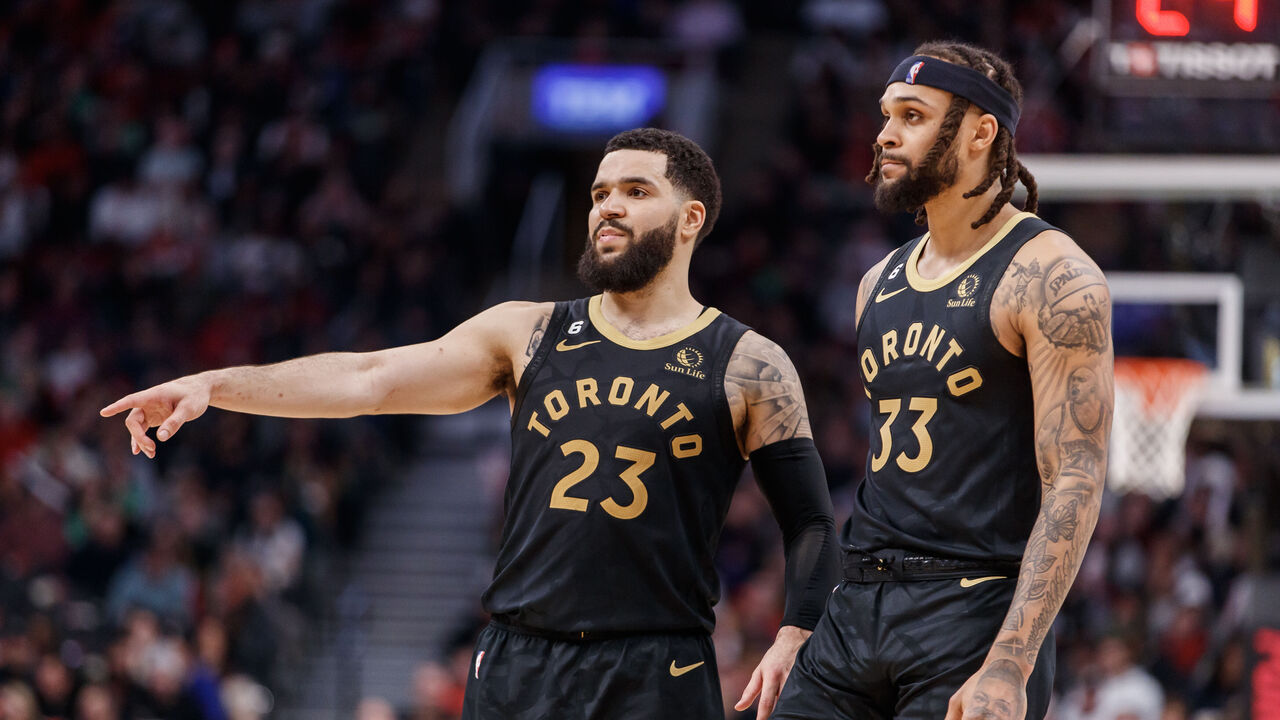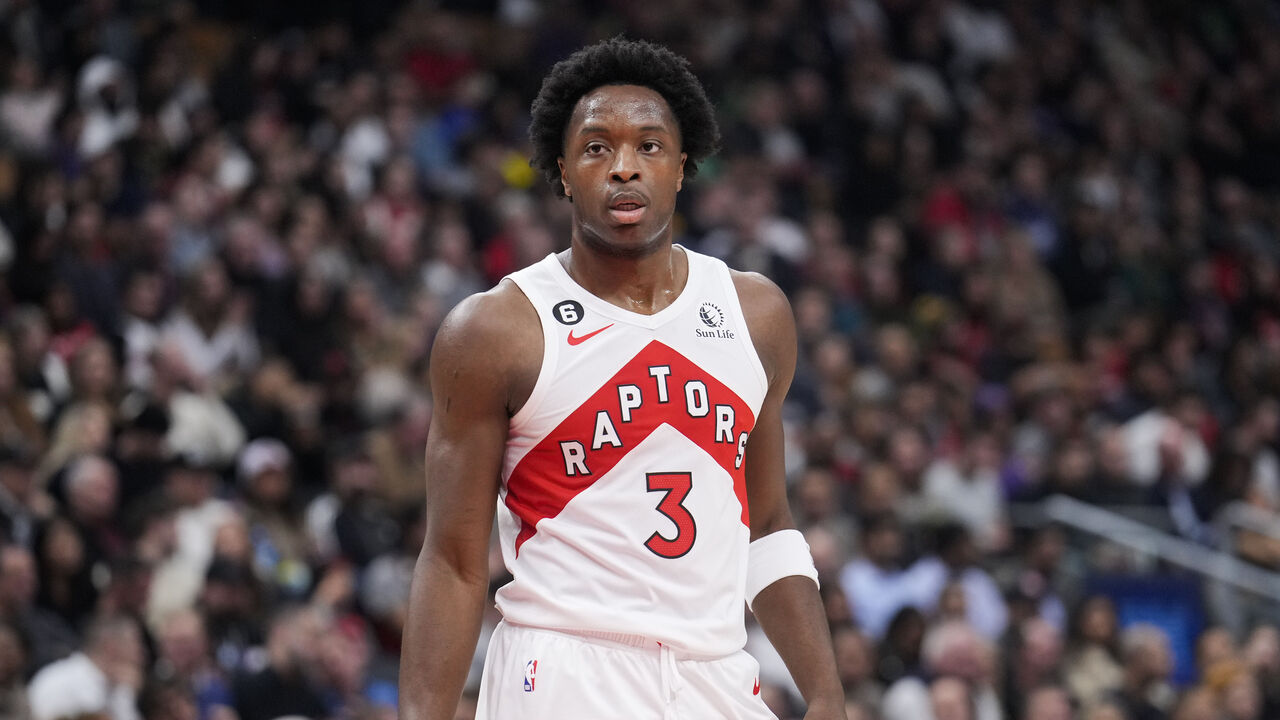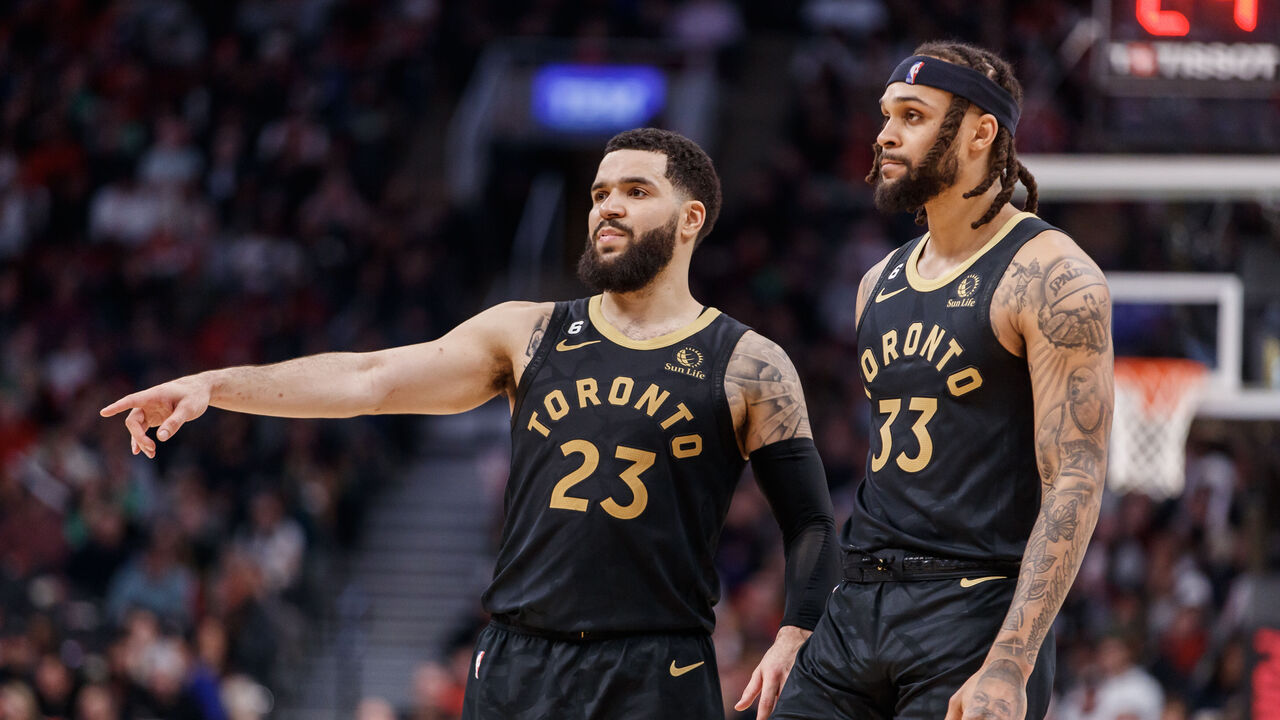Assessing the Raptors' 4 major offseason concerns
Toronto Raptors president of basketball operations Masai Ujiri opted against taking a subtle approach to Friday’s press conference.
Speaking in the wake of head coach Nick Nurse’s dismissal, Ujiri told it like it is by saying the Raptors were unwatchable in 2022-23 and that the organization veered away from what made it one of the league’s most consistent and respected outfits. “To watch us play this year was not us,” Ujiri said.
And with that, Ujiri, general manager Bobby Webster, and the Raptors embark on an offseason that could promise plenty of turnover. “Whether it’s tweaks or major changes, we’re definitely going to look at everything,” Ujiri added.
Here are Toronto’s four main areas to address this offseason.
Coaching vacancy to fill
Following five years under Nurse, the Raptors’ coaching position is a major question. Nurse had faults. He leaned too much on starters, let the offense bog down into isolations, and pushed a defensive scheme that allowed too many 3-point attempts and tired out his players – to cite some common critiques. Still, it’s hard to argue with Nurse’s resume, which includes a Coach of the Year award and a championship. Toronto will have a hard time finding an immediate upgrade, even though it seemed clear the team needed a new voice in the locker room.
Ujiri and Webster’s choice for a new coach will go a long way in determining the Raptors’ new identity, which the team president stressed in his press conference. Will Toronto prioritize developing its young players and building for the future? Or does the club want someone who can grind every win out of the talent the roster has right now? Will the new coach bring creative offensive schemes and a more traditional and less physically taxing defense than the one Nurse deployed? These questions loom large for the Raptors’ front office.
So far, the coaching candidates reportedly include former Boston Celtics coach Ime Udoka, former Raptors 905 coach Patrick Mutombo, and Vanderbilt head coach Jerry Stackhouse.
Udoka had success in Boston, but he comes with off-court baggage and only spent a season as the head coach of a highly talented Celtics roster. Mutombo brings familiarity with the organization and perhaps an eye toward development. However, he’s never been an NBA head coach. Stackhouse also provides a familiar face as he coached the Raptors 905 and previously worked as an assistant to Nurse. But he compiled just a 61-69 record in four seasons at Vanderbilt.
No candidate is perfect, but Toronto’s next head coach should reflect the direction and identity that Ujiri emphasized.
Impending free agents

The Raptors are expected to have three key free agents this offseason: starting center Jakob Poeltl and guards Fred VanVleet and Gary Trent Jr. The latter two have player options for the 2023-24 campaign that they’ll likely decline.
After acquiring him for a package including a top-six protected 2024 first-round pick at the trade deadline, Poeltl is virtually a lock to re-sign. Ujiri called the Austrian center a “championship piece” during his end-of-season press conference, and it’s hard to envision that stance changing. Poeltl is expected to command about $20 million per year as a free agent, according to The Athletic’s Shams Charania.
Toronto’s guard situation is far more complicated. VanVleet struggled for much of last season. The 2021-22 All-Star’s 48.6% effective field goal percentage placed him in the 15th percentile among all players. Still, VanVleet’s scoring volume and playmaking are irreplaceable for the Raptors, who haven’t found a competent backup point guard in recent years, let alone another starter. Re-signing VanVleet to a deal of around $25 million per year and re-assessing later – perhaps for a trade next summer – might be the best course of action.
Losing Trent is more tolerable – perhaps in a sign-and-trade – as Toronto somewhat phased him out following his move to the bench when it acquired Poeltl. But for a team that lacks 3-point shooting, losing its second-best long-distance shooter in terms of both makes and percentage is a tough pill to swallow.
The Raptors have Bird rights on all three free agents, meaning they can go over the salary cap to re-sign them. If Poeltl and VanVleet ink new deals for a combined $45 million per year, Toronto will already exceed the projected $134-million salary cap before factoring in outside free-agent acquisitions. The Raptors might not have a choice here if the alternative is losing key players for no return.
Stalled internal development
Of all the disappointing elements of the Raptors’ season, a lack of development from their young players may top the list. The magic seemed to disappear this year for an organization once praised for its development system – turning unheralded players like VanVleet and Pascal Siakam into stars.
That conversation starts with 2022 Rookie of the Year Scottie Barnes, who put up the same 15.3 points per game this season as he did in his first campaign while shooting worse from inside and outside the arc. His 28.1% mark from deep was second-worst in the NBA among players with at least 200 attempts. With defenses sagging off him and Barnes typically playing with at least one other poor shooter, spacing was often a nightmare with him on the court.
In Barnes’ rookie season, he looked like a future superstar who would seamlessly transition the franchise into a new era. However, he played like a flawed starter during his sophomore campaign and needed specific pieces around him to succeed. It’s too early to panic about the 21-year-old, but Barnes and the Raptors have to take a good look at where they focus his hopeful improvement in 2023-24.
Precious Achiuwa, Dalano Banton, and Malachi Flynn didn’t fare much better. Achiuwa showed floor-spacing potential in his first year in Toronto but shot an abysmal 26.9% from beyond the arc this season. Banton had flashes as a rookie. However, he’s another non-shooter at guard who failed to impact the big club as a sophomore. And three years into Flynn’s Raptors career, the diminutive guard has been inefficient on offense and a negative on defense.
Toronto needs to rejuvenate its development system to get back on track, particularly in Barnes’ case.
Potential additions and the draft

The Raptors retaining their current players and entering next season with the same roster isn’t an option. Ujiri made that clear Friday. With financial flexibility a challenge in free agency, the franchise may have to get creative with trades and nail its first-round pick in the draft.
Toronto’s name floated around in a plethora of trade rumors around February’s deadline, but the club avoided dealing away any key pieces. With reported options VanVleet and Trent off the table due to their impending free agency, all eyes are now on O.G. Anunoby as a potential departure. Anunoby is the Raptors’ only tradeable player with real value outside of cornerstones Siakam and Barnes, and his situation will tell a lot about the team’s next moves.
With Anunoby almost certainly headed for free agency in 2024, he’s due for a massive pay upgrade – one Toronto likely can’t afford if it retains its guys this summer. Dealing a 25-year-old entering his prime and coming off a strong season could net them much-needed depth or promising prospects with the knowledge that Anunoby is as good as gone. Sacrificing a fan favorite could be the key to acquiring the parts needed to right the ship or build a new one altogether.
Then there’s the draft. The Raptors only have a first-rounder, projected at No. 13, with their second-round pick shipped to San Antonio in the Poeltl trade. The same logic applied to an Anunoby deal functions here. In a relatively weak draft, Toronto could choose a ready-now option to provide depth to an already-established roster or take a swing for the fences in hopes of plucking out a future star that fits on Barnes’ timeline.


